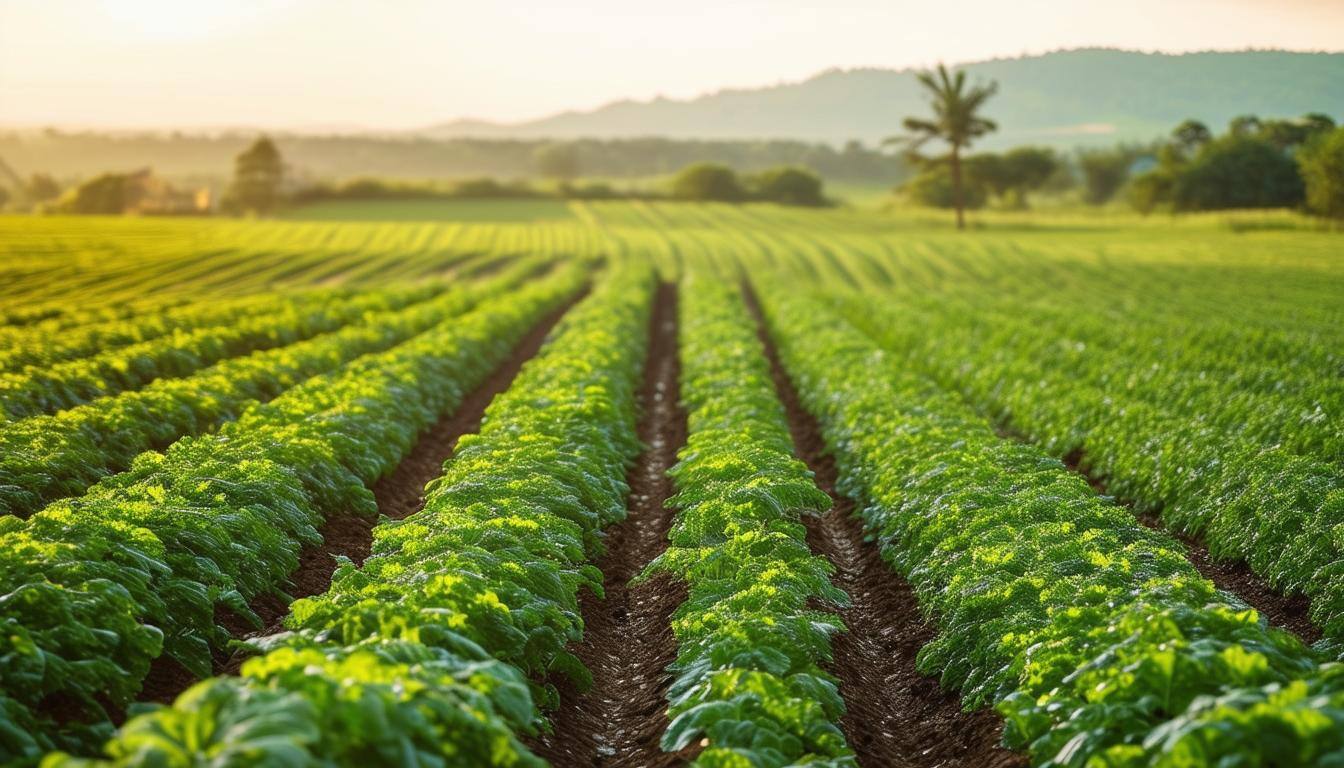GLOBALG.A.P. (Good Agricultural Practices) certification is a globally recognized standard aimed at ensuring the sustainability and safety of agricultural practices. This certification is essential for producers, retailers, and consumers who prioritize the quality of food and the welfare of the environment.
The Importance of GLOBALG.A.P. Certification
In an era where consumers are increasingly conscious of food safety, environmental impact, and ethical production practices, GLOBALG.A.P. Certification plays a pivotal role in meeting these demands. This certification enhances the credibility of agricultural products and builds trust among stakeholders. It also complements Food Safety Certification, ensuring that products are not only sustainably produced but also meet the highest safety standards. Here are some key benefits of achieving GLOBALG.A.P. Certification:
- Market Access: Many retailers require GLOBALG.A.P. certification as a prerequisite for sourcing products.
- Consumer Confidence: Certification reassures consumers that products meet stringent safety and quality standards.
- Operational Efficiency: The certification process encourages best practices, leading to improved farm management and reduced waste.
- Environmental Sustainability: Adhering to the guidelines promotes sustainable farming techniques that protect biodiversity and conserve resources.
Key Elements of GLOBALG.A.P. Certification
The GLOBALG.A.P. certification framework encompasses a wide range of practices designed to enhance food safety and sustainability. The main elements include:
- Food Safety: Farmers must implement robust food safety measures throughout the production process, from planting to harvesting.
- Environmental Management: The certification emphasizes the responsible use of inputs, such as fertilizers and pesticides, to minimize environmental impact.
- Worker Health and Safety: Ensuring the well-being of workers is critical. Farms must provide safe working conditions and fair labor practices.
- Animal Welfare: For livestock producers, adherence to animal welfare standards is essential, ensuring humane treatment and care of animals.
- Traceability: Producers are required to maintain detailed records to facilitate traceability of products from farm to consumer.
The Certification Process
Obtaining GLOBALG.A.P. certification involves several steps, each designed to ensure thorough compliance with the established standards. The process typically includes:
- Preparation: Producers must familiarize themselves with the GLOBALG.A.P. standards relevant to their operation and assess their current practices.
- Training: Engaging in training programs can help staff understand the requirements and implement necessary changes effectively.
- Self-Assessment: Conducting an internal audit allows producers to identify gaps in compliance before the official audit.
- Audit: An independent certifying body will conduct an on-site audit to verify compliance with GLOBALG.A.P. standards.
- Certification Decision: Following the audit, the certifying body will issue a certificate if standards are met or provide feedback for necessary improvements.
- Continuous Improvement: Certification is not a one-time event. Regular audits and updates are necessary to maintain compliance and enhance practices.
Challenges in Achieving Certification
While the benefits of GLOBALG.A.P. certification are significant, the journey to certification can present challenges. Producers may face:
- Cost: The financial investment in training, audits, and potential upgrades to practices can be substantial.
- Complexity: Navigating the myriad of standards and requirements may be daunting, especially for smaller producers.
- Resistance to Change: Implementing new practices often requires a cultural shift within the organization, which can meet with resistance.
- Resource Limitations: Smaller farms may struggle with the resources required to meet the certification standards.
Future of GLOBALG.A.P. Certification
As the global agricultural landscape evolves, so too does the relevance of GLOBALG.A.P. certification. Emerging trends such as climate change, technological advancements, and changing consumer preferences necessitate continuous adaptation of the standards. Future developments may focus on:
- Digital Transformation: The integration of technology in farming practices to enhance efficiency and traceability.
- Sustainable Practices: Increasing emphasis on climate-smart agriculture that addresses environmental challenges.
- Social Responsibility: A growing focus on ethical labor practices and community engagement.
Conclusion
GLOBALG.A.P. certification serves as a vital tool for promoting safe, sustainable, and ethical agricultural practices worldwide. By adhering to these standards, producers can not only improve their marketability but also contribute positively to the environment and society. As the demand for transparency and sustainability in agriculture continues to rise, so will the importance of GLOBALG.A.P. certification in ensuring that food systems remain resilient and responsible.





.webp?width=1644&height=1254&name=Food%20Safety%20Dashboard%201%20(1).webp)
